On a family holiday almost 40 years ago I visited Winsford, the village on the edge of Exmoor where Ernest Bevin was born (and Boris Johnson was raised). Having read the first book in Alan Bullock’s scholarly three-volume biography, I’d become a convinced Bevinite (not to be confused with the followers of Nye Bevan, his near namesake and bête noire). As it was the centenary of Bevin’s birth I expected to find some kind of commemoration, but there was nothing apart from a faded plaque on the cottage he was born in. I asked the woman serving in the Post Office opposite if I’d missed anything, but she’d never heard of the great man. This alone explains why a book seeking to reacquaint us with one of the towering political figures of the 20th century is so long overdue.
Bevin always planned to retire at 60. By then he would have been at work for almost half a century. At the age of 11 he was doing a ten-hour day as a farmhand, his mother having died three years earlier. (He never knew who his father was.) Despite his humble origins, by the late 1930s he’d already created the biggest trade union in the free world, rescued the Daily Herald from obscurity and overseen its rise to become the first newspaper to reach a circulation of a million, and built Transport House, the great edifice that served as the headquarters not just of his Transport and General Workers Union but of the Labour party and TUC as well.
Like so many other ‘flowers born to blush unseen’, Bevin had found an outlet for his talents in the trade union movement. An advocate of Ben Tillett’s New Unionism, he believed that the salvation of the working class was to be found in industrial organisation rather than political revolution. For Churchill (who Bevin is compared with in this book’s title), opposition to communism was in his DNA and involved no personal vexation. For Bevin it was very different. To someone born in much more deprived circumstances than working-class Bolsheviks such as Stalin, Lenin’s rallying cry of ‘Peace, Land and Bread’ must have seemed seductive; but Bevin battled against communists on a daily basis.
His anti-communism stemmed partly from his Methodist upbringing, but mostly from his trade unionism. In rejecting the fashionable cause of a popular front with communists against fascism in the 1930s, he was acutely aware that Stalin was every bit as hostile to free trade unions as Hitler and Mussolini. By then two events had earned him a notoriety on the left that exists to this day.
The cause of the general strike was the savage treatment of Britain’s million coal miners. Its effect was to bring the country as close to revolution as it has ever been. As one observer noted, it was Bevin’s ‘quick brain and natural genius for organisation that saved the strike from being a complete fiasco’. But for the communists and their fellow travellers Bevin the negotiator was the villain, and A.J. Cook, the mine-workers’ general secretary, for whom compromise was anathema, the hero.
Andrew Adonis writes rivetingly about this, as he also does when describing the atmosphere that rippled through Labour’s 1935 conference, when George Lansbury, the party leader, rose to oppose a proposition that the League of Nations be authorised to use military force against Mussolini’s fascists in North Africa. He delivered an impassioned anti-war speech, making a virtue of his inconsistency by explaining that he’d been wrestling with his conscience.The applause continued even as Bevin strode to the rostrum to deliver his famous rebuke about Lansbury hawking his conscience round from body to body to be told what he ought to do with it. Six days later Lansbury resigned, to be replaced by Clement Attlee.
Attlee said that his relationship with Bevin was the deepest of his political life: ‘Ernest looked, and indeed was, the embodiment of common sense. Yet I have never met a man in politics with as much imagination as he had, with the exception of Winston.’ It was Winston who ended Bevin’s ruminations on retirement by bringing him into the coalition government as minister of labour. While Churchill travelled the world, Bevin travelled the country, even hosting BBC radio shows from some of the 5,000 works canteens he had set up. Despite the Emergency Powers Act, basically allowing him to direct anyone to do anything, he refused to introduce industrial conscription, but managed to mobilise a greater proportion of the population than the totalitarian regimes of Germany and Italy. If Bevin had failed to adapt to ministerial office he could have retired in 1941, as planned. But he succeeded magnificently.
When Attlee formed his government after the 1945 election landslide, he’d originally planned to send Hugh Dalton to the Foreign Office, but changed his mind, explaining later that he wanted a tank rather than a sniper. The tank was Bevin. Foreign secretary was a post that even Labour considered to be the preserve of graduates or intellectuals. As somebody said of the uneducated, unskilled Ernie Bevin, there were only two posts at the Foreign Office that he could have held: doorkeeper or foreign secretary.
At the Potsdam Conference, which had been interrupted by the general election, the American position was far too favourable towards Russia. Truman’s stated determination to be out of Europe within two years played into Stalin’s hands — and James Byrnes, the US secretary of state, had already described Stalin as ‘a very likeable person’. Then the tank arrived. Bevin saw his task as to contain Stalin, entice America and stabilise Germany. Nato, the Marshall Plan (developed with Byrnes’s replacement) and a strong decentralised democracy in West Germany were the measure of his success.
In this scrupulously balanced assessment, most of Adonis’s criticism is reasonable. But the accusation of imperialism, a term invariably used by the far left to describe any politician who isn’t a Marxist, is incongruous. Bevin was a Victorian, who lived at a time when our entire population consisted of imperialists. The charge is levelled at him and Attlee (another Victorian) that they refused to divest the country of its empire immediately after the war. Unlike Churchill, they did not resist Indian independence, but Adonis thinks they should have gone further. The diminution of Britain’s role in the world may have been obvious after Suez, but surely not after a world war that we’d won. As Bevin pointed out to the UN, Britain had been at war for one day in three between 1914 and 1945, the only one of the wartime allies to take part in both wars from the first day to the last. Abandoning Britain’s world role as if we’d been defeated was surely unthinkable.
Adonis also links the anti-Zionism of Bevin and Attlee with anti-Semitism. Bevin’s greatest mistake was undoubtedly Palestine. Rather than acquiesce in a Jewish state that had insufficient regard for the Palestinians, Britain simply handed the mandate back to the UN. Bevin should have tried to achieve what we would now call a two-state solution, rather than uncharacteristically walking away. Attlee never offered an alternative; and Churchill as leader of the opposition accused both men of ‘a very strong and direct streak of bias and prejudice’. The case for and against this accusation is set out fairly, and most of it points to Churchill’s observation being at least feasible.
As for Bevin’s character, Adonis’s contention that he had ceased to be working class by the time he came into government because of how he dressed and where he lived is like suggesting that the Marquis of Bath ceased to be an aristocrat when he donned a kaftan and moved into a cottage on his vast estate. Bevin the minister was little different to Bevin the Bristol drayman, still finding cultural sustenance in football and the music hall. He refused all honours, including a peerage, a knighthood and the Companion of Honour (CH) offered by Churchill after the war.
He died in office at 1 Carlton Gardens, the official residence of the foreign secretary, where Attlee allowed his friend to stay even though Bevin had become lord privy seal six weeks earlier. Far from retiring as planned, he was found with the key to his ministerial box grasped firmly in his hand.
Got something to add? Join the discussion and comment below.
Get 10 issues for just $10
Subscribe to The Spectator Australia today for the next 10 magazine issues, plus full online access, for just $10.
You might disagree with half of it, but you’ll enjoy reading all of it. Try your first month for free, then just $2 a week for the remainder of your first year.

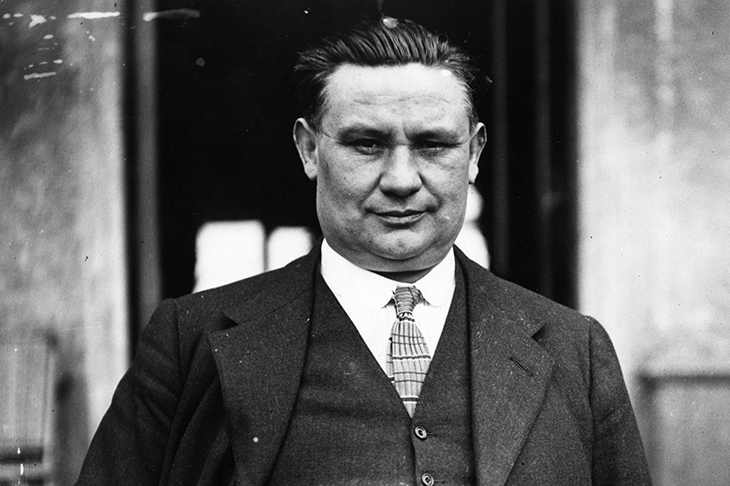

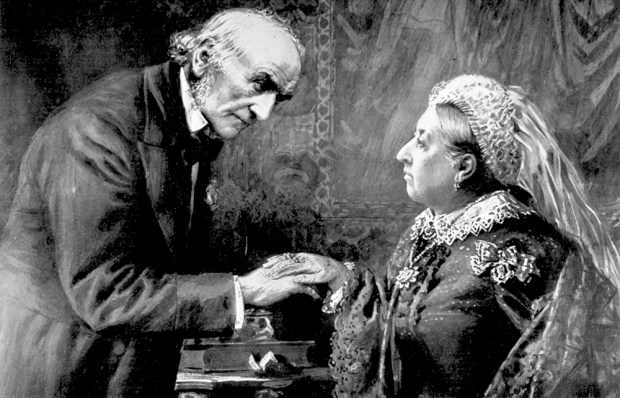
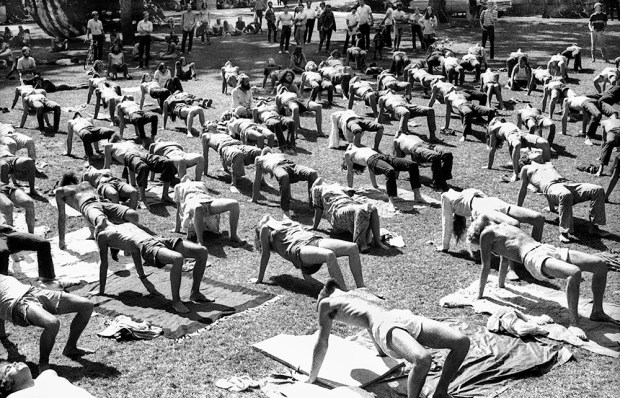
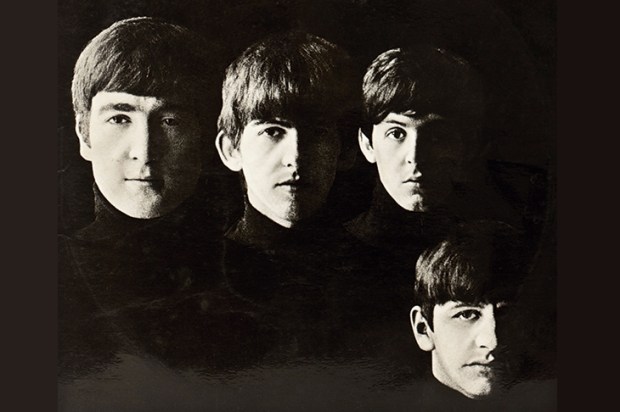
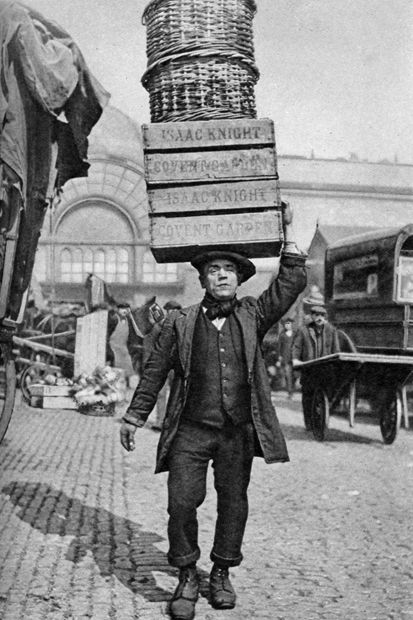
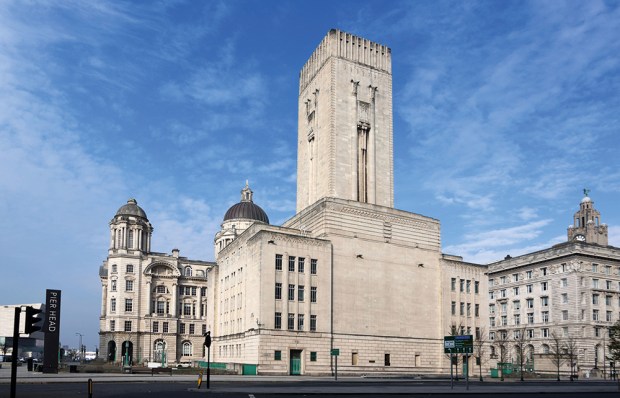






Comments
Don't miss out
Join the conversation with other Spectator Australia readers. Subscribe to leave a comment.
SUBSCRIBEAlready a subscriber? Log in